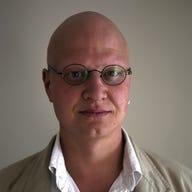Why Africa needs Maker Faire

"When you talk about Maker Faire in the US, a large percentage of the makers involved are hobbyists, and most of the rest are looking to go into Maker Pro," Emeka Okafor said. "In Africa, you don't have makers that fit the same profiles, you largely have makers who are making things to solve problems or to supplement their living."
After a short hiatus, Okafor and a small team of volunteers are planning to bring Maker Faire, the international celebration of hardware hacking, back to Africa this September. It will be the fifth time the event has visited the continent: the first was in 2009 in Accra, Ghana from where it went to Nairobi, Cairo and finally, in 2012, Lagos, Nigeria.
"This year we're looking to have Maker Faire Africa in Johannesburg," Okafor said. "We haven't been to southern Africa before, and South Africa will probably be different again to previous events. You'll find more types of people who can afford an Arduino or a Raspberry Pi and have access to a 3D printer than in, say, Nigeria."
Described as "the greatest show and tell on Earth", Maker Faire has grown from a single event organised by MAKE: magazine in San Francisco to a network of international crafting showcases on every continent. Thanks to support from celebrities such as MythBusters' Adam Savage and high-profile writers such as Chris Anderson — whose book Makers tipped the movement as the most significant force in US manufacturing of the future — there was even a White House Maker Faire hosted by Us president Barack Obama last month.
"This event celebrates every maker," Obama said in his introduction to the event. "From students learning STEM [science, technology, engineering, maths] skills to entrepreneurs launching new businesses to innovators powering the renaissance in American manufacturing, I am calling on people across the country to join us in sparking creativity and encouraging invention in their communities."
Each event so far organised by Okafor and his fellow volunteers has been noticeably different in atmosphere.
"The range of projects we've seen at Maker Faire Africa has been incredible," Okafor said. "In Egypt we had young men and women who had built autonomous vehicles. In Kenya there were affordable machines for recycling. In Nigeria we had people from trade schools making power inverters."
Perhaps the best known project demonstrated at Maker Faire Africa was in Nigeria in 2012, when a team of young female engineers from a local high school built a generator that turns urine into electricity. The girls' story went global and was covered by many well-known news sites. While the promise of free electricity might have been a bit hopeful, it was indisputably a more positive story about the potential for women to succeed in Nigeria than usually reaches the outside world.
On the whole, though, Okafor said that many more of the exhibitions are low key and driven by practical necessity, such as bicycle-powered generators for charging batteries or jewellers from the slums of Kibera who make bone artefacts from the remains on butchers' floors. And that's okay.
"Each one of these people and everyone attending is important," he said. "It doesn't have to be the best invention or the most interesting, Africa has to be seen as a home for creation and invention."
Unlike other Maker Faires, Okafor said that it's not enough to simply hold the event in an African city and see who turns up. Two volunteers are currently working in South Africa to discover inventors in rural areas and neighbouring countries such as Zambia and Botswana who they can encourage to attend and show off their work. They rely on sponsorship funding to arrange for travel and accommodation for makers from outside the host city.
If the event was restricted to those who could afford to turn up, he said, it would be a missed opportunity.
"The landscape is different in Africa," Okafor said. "We need to trigger the community and that involves an investment on our part."
By 'triggering the community', Okafor means spreading technical skills and understanding of how innovation happens. He's passionate in his belief that bringing makers together can help fill in skills gaps.
"Educational institutions across Africa are failing their populations. They're producing people who come out with certificates but are largely not very productive. We need to be provocative about what we're asking our young people to do. Is it about production or the appearance of education? It's more important for Africans to start asking questions about what is useful for them," Okafor said.
In a week when it was revealed aid donors to Africa take far more money from the continent than they actually put it, the need for more local entrepreneurs is pressing. While many countries in Africa have a proud history of innovation — a theme which was the subject of a recent TEDxGlobal talk last year — it's still the case that many African inventors are working in isolation, solving their own problems in innovative ways that never get shared for others to follow, Okafor said.
"The most important thing for us is about changing the way African makers and inventors see themselves," he said. "These individuals represent something very important in society, there's a common thread that connects them."
Image: Maker Faire Lagos